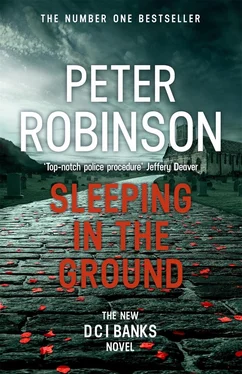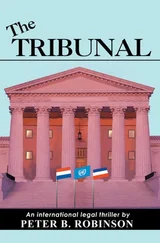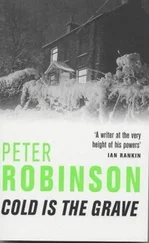‘So what would our man do next, assuming he hasn’t shot himself already?’ Banks asked. ‘Where would he be likely to hide?’
‘Good question. I wish I knew the answer. From what I’ve read, he was cautious enough to visit the site in advance of his act, which shows a more than usual preoccupation with escape. Most of these sort of events happen in America, as I’m sure you know. To the degree that some sociologists are labelling mass shootings a contagion there. Schools, workplaces, shopping malls, that sort of thing. Shootings distinct from terrorist acts. Loners, outsiders, disgruntled employees. Rarely do they go in with an escape route planned. If your killer was so concerned with escape, and he hasn’t killed anyone else except the people at the wedding, then it’s logical to predict that he had somewhere to escape to , wouldn’t you agree?’
‘A bolt-hole?’ Banks suggested.
‘Something like that. Somewhere he’d feel safe. Somewhere he’d believe you couldn’t find him. He’s clever and obviously not lacking the nerve to take risks. He could even have gone home, on the assumption that you’re not smart enough to find out who he is or where he lives.’
‘He may well be right about that,’ said Banks.
‘Exactly,’ said Jenny. ‘But it’s good that he thinks he’s smarter than you, and that he likes to take risks. It gives him a far greater chance of slipping up, and you a far better chance of catching him when he does. He could even be doing a “purloined letter” and living next door to the police station. That’s just a frivolous example, by the way. I’m not suggesting you should dash out and check up on it. But do you see what I mean? The level of premeditation, of planning, makes his actions a bit different from the run-of-the-mill rampage killer. And whether he’s finished with the killing or not, he still has to hide out somewhere unless he wants to get caught, and so far I wouldn’t say that he does.’
‘Could he already be overseas?’ asked Gervaise.
‘I suppose it’s always possible,’ Jenny answered. ‘It’s true that he could be anywhere, as none of us know who he is or what he looks like. If he’s as organised as he appears to be, he no doubt had a change of clothing stashed somewhere, perhaps a passport, too. He could be in Paris wearing a business suit and carrying a leather briefcase by now, for all we know. But let’s not get ahead of ourselves. If you start assuming things like that, it tends to affect the investigation, sap confidence, lower morale. All we can do is work with what we’ve got. You’d have to ask a geographical profiler for a more detailed analysis — that’s not my area of expertise — but spree killers generally start close to home. They may travel some distance over the course of the spree, but the starting point, and returning point, if they get that far, is somewhere close to home. Remember Ryan and his old school. We don’t know for certain that our man’s a spree killer yet, but the same applies to most rampage killers. So let’s assume he’s not operating too far from home. Unless he is a terrorist — and I’m sure you have experts in that field working with you — there’s a very good chance that he’ll stick to what he knows, where he knows, where he feels comfortable. Remember, he’s not infallible, no matter what he thinks. He will make mistakes. And you have to believe that even if he has fled overseas already, you’ll still bring him to justice in the end.’
Banks could follow the logic in Jenny’s arguments and accept pretty much everything she said, but he could also see why many police officers were suspicious of psychological profilers. After all, she hadn’t told them where to find the killer or how to go about tracking him down. Pep talks were all very well, but how much further ahead were they? ‘Can you be more specific about any of this, Jenny?’ he asked, trying to word his thoughts as diplomatically as possible.
‘Name, address, National Insurance number, you mean?’
‘That sort of thing would be useful.’
Jenny laughed. ‘Sorry. I warned you not to expect too much or you’d be disappointed.’
‘I’m not disappointed, just frustrated.’
‘Well, Alan, I don’t know if it’s in my job description to do anything about that.’
Banks noticed that Gervaise was following the exchange with great interest, and it was hard to miss the sparkle in Jenny’s eyes. He felt himself redden. ‘Same old Jenny,’ he said. ‘Batting the ball back and forth.’
‘Not so much of the old.’ Jenny put her folder down, leaned back in her chair and removed her glasses. ‘I know how frustrating this must be,’ she said. ‘I’ve been through this sort of thing many times before. Many, many more than I had last time we worked together, Alan. Things have come a long way since then. Certainly profilers have and, in some cases, the police attitude towards us has become somewhat more enlightened, but we’re still not miracle workers.’
‘I didn’t mean to be critical,’ Banks said. ‘I’m just thinking about this specific crime. So we’ve got a mass murderer and not a spree killer, maybe, unless he kills again within seven days. That’s useful to know, but it doesn’t help us, it just puts a ticking clock into the equation.’
Jenny raised an eyebrow. ‘I’d say you had that already, wouldn’t you?’
‘Point taken.’
‘Anyway,’ Jenny went on. ‘I was getting to that, to this specific crime. There are some details I find interesting, in addition to the recce and the planning of an escape route.’
‘Such as?’ Banks asked.
‘Such as the occasion. Why target a wedding? As I said before, in America, schools and workplaces are the main targets. At one time post offices seemed such a breeding ground for mass murderers that it was called “going postal”.’
‘So what does our killer have against weddings?’
‘Not even that,’ Jenny said. ‘His thinking is unlikely to be so linear. But there’s something in there. Something in why he chose a wedding. Perhaps even why he chose that particular wedding. There’s all the usual stuff in his behaviour, of course, anger against women, or a particular woman, perhaps a failed marriage in his background, but you need to examine it from all angles. Revenge and envy are often strong motives for mass murderers. They’ve often failed and are envious of those who appear to have succeeded, or they’re avenging some real or perceived slight, perhaps from years ago. Something that might seem quite insignificant to us.’
‘The wedding got quite a bit of publicity around Eastvale,’ Gervaise said. ‘Minor local celebrities and all that. Model. War hero.’
‘That’s the sort of thing I mean,’ said Jenny. ‘Anything like that could have set off some dormant desire for revenge. A war hero, for example, could have been a symbol of something he wanted to destroy, maybe because he was a coward, or he thought he should have been given hero status himself but was overlooked. Envy and revenge.’
‘Why does it have to be a symbol?’ asked Banks. ‘Why couldn’t it have been that actual wedding itself he wanted to destroy? Or a particular person who was there? The bride or groom, for example. Both were hit. One killed. Could he have been after a specific person? Isn’t a cigar sometimes just a cigar?’
‘I haven’t jumped to any conclusions yet,’ said Jenny. ‘It’s an interesting idea, and of course he could have been after one or more people in particular, people he thought had ruined his life, but I’m afraid I don’t have enough to go on to take my analysis any further than that. If it was a terrorist attack, then perhaps a large social gathering was enough of a target. You also mentioned that the groom was a war hero. There could be something in that, too. A military connection. A number of mass murderers were found to have military backgrounds. You should certainly look at the soldiers who were with him in Afghanistan.’
Читать дальше












